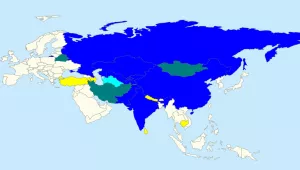Note
This op-ed was reprinted on March 24, 2006, in the International Herald Tribune as "Endangering Species: Poppies to Songbirds".
THIRTY-ONE years after the Convention on International Trade in Endangered Species was approved, illicit trade of wildlife continues in many regions, endangering numerous species of animals and plants. Asia is among the worst offenders.
Mong La, the main city in the eastern autonomous part of Burma, was once a haven for poppy fields and methamphetamine labs. Under foreign pressure, however, Mong La authorities largely wiped out poppy cultivation. But eradication also wiped out the livelihood of thousands of people.
Authorities came up with an innovative twist on alternative livelihood by converting Mong La into a Burmese Las Vegas, with casinos and nightclubs frequented by Chinese tourists. But a few months ago, the Chinese government abruptly closed the border, and business in Mong La collapsed. In the surrounding rural areas, many people have food security for only eight months a year. It is only a matter of time before the pressure to grow poppies again becomes irresistible.
Meanwhile, whatever is left of life around Mong La is fed by another illicit trade — this one of wildlife. Recently in the main market, terrapin turtles, monkeys, rodents, and birds were crammed into tiny cages, all for sale for a few dollars. So were bear claws, dried genitals from civets, and antlers from deer. A female accipiter hawk was advertised for $4. The bird was barely alive, unfed for several days, and when its owner yanked it out of its cage, it became apparent that its leg was broken and it would probably die within a matter of days. When I asked the seller whether she knew that she was doing something illegal, she reduced the price to $3.
Although some of these unfortunate animals supply the domestic market in Burma, many go to China and elsewhere in Asia for food consumption as well as homemade medicines and good luck charms. Many of the species are protected under the Convention on International Trade in Endangered Species, but the local authorities in Mong La, the Burmese government, and China have not shown much of an interest in enforcing the prohibitions.
For the desperately poor villagers in the hill areas, the wildlife trade now represents the only source of income. Cutting through tropical forest, the road from Kentung to Mong La is often dotted by boys and men with slingshots hunting for birds.
The ecological impact of hunting and poaching is smaller overall than the environmental destruction caused by other human activities, such as deforestation. Paradoxically, the direct consequence of drug eradication in Burma has been a rampant increase in deforestation as an alternative source of livelihood, fed by demand for timber in China. Vast tracks of hills along Burma's border with China have been completely stripped of trees, collapsing entire ecosystems.
Yet for certain endangered species, such as rhinos and tigers, hunting represents a more imminent source of demise. Hornbills have been killed out in parts of Burma. Hill mynas, laughing thrushes, and other songbirds now decorate households in China and Indonesia, but no longer sing in the wild.
A commitment on the part of governments in the region to uphold environmental treaties would help many critically endangered species. The United States should pressure countries to crack down on illicit wildlife trade. However, it is difficult to monitor large forests, and interdiction efforts generally capture only a small portion of illicit flows. A potentially greater impact would come from a concerted effort — both by governments and environmental nongovernment organizations — to dry up the demand around the world for wildlife as exotic food, medicine, and pets.
Such an effort is not simply a matter of protecting endangered species, but also one of health protection. SARS is believed to have spread in China by hunting and consuming wild civets. Similarly, capturing wild birds and keeping them in close proximity to chickens and other domestic animals greatly increases the chance of spreading diseases, including avian flu.
A serious educational campaign that tiger testicles and eagle eyes will not cure impotence or blindness and that wildlife should remain wild would not only help save the planet's vanishing biodiversity, but would also limit the spread of devastating infectious diseases among people and wildlife.
Vanda Felbab-Brown is a research fellow at the Belfer Center for Science and International Affairs at Harvard University's John F. Kennedy School of Government.
Felbab-Brown, Vanda. “Asia's Role in the Illicit Trade of Wildlife.” The Boston Globe, March 20, 2008




